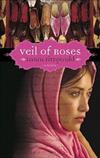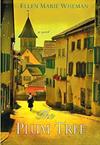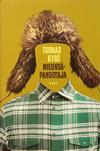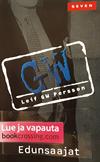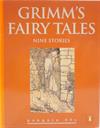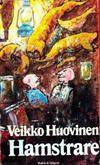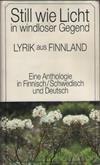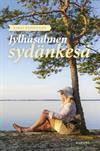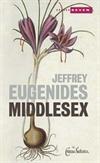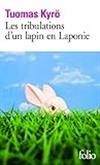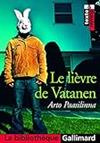
A. D. 62: Pompeii
Registered by rem_ABK-578523 on 3/24/2005
3 journalers for this copy...
2005/20
I purchased this for my new Book Club Meetup Group . This is our first selection. I have decided to make a little journal journey through my reading adventure.
I purchased this for my new Book Club Meetup Group . This is our first selection. I have decided to make a little journal journey through my reading adventure.
I read up to Chapter 5 before going to bed last night. Here are my inital impressions:
Unfortuantely, the fact that this is a self-published novel by a first time author is glaring at me.
Though the concept of modern day woman time travelling back to ancient Pompeii remains a good one, and the writing is decent, this book is badly in need of an editor: I've already come across sentences fragments, wrong verb tenses, and some rather annoying repetiveness.
Still, these errors are not so bad that I won't keep reading it... but so far I'm only leaning towards giving it 6-7 stars.
Unfortuantely, the fact that this is a self-published novel by a first time author is glaring at me.
Though the concept of modern day woman time travelling back to ancient Pompeii remains a good one, and the writing is decent, this book is badly in need of an editor: I've already come across sentences fragments, wrong verb tenses, and some rather annoying repetiveness.
Still, these errors are not so bad that I won't keep reading it... but so far I'm only leaning towards giving it 6-7 stars.
I've now read up to Chapter 17.
Although the grammatical issues are rather minor, those repetitive statements are really getting on my nerves. Also, I feel like I'm being told a university lecture about ancient Pompeii, rather than being shown the world through Miranda's eyes. The dialouge is usually over explained, and some times the story is just down right boring. I would tell you more about what this is about, but so far, not too much has actually happened.
I'm leaning more towards 6 stars now.
PS: I do beleive human urine had been used in such processes as the laundry, but it is actually acidic, not alkaline as the author states.
Although the grammatical issues are rather minor, those repetitive statements are really getting on my nerves. Also, I feel like I'm being told a university lecture about ancient Pompeii, rather than being shown the world through Miranda's eyes. The dialouge is usually over explained, and some times the story is just down right boring. I would tell you more about what this is about, but so far, not too much has actually happened.
I'm leaning more towards 6 stars now.
PS: I do beleive human urine had been used in such processes as the laundry, but it is actually acidic, not alkaline as the author states.
Chapter 23 -- 50 pages from the end. My gut reaction: Is this it? Is this all there's going to be?
I was expecting a lot more out of a story than this. If the author had not wasted so many words in repetition of thoughts she'd already expressed, perhaps there could have been more meat to this.
And actually, this story has been written with all the passion of a dead fish. Although it's "romantic"...in the spirit of not completely grounded in reality, (but more like wishful thinking), it is really devoid of any passionate excitement. No offense, but it feels likes it's written by a university professor....the likes of Ben Stein.
I would've liked more energy, excitment, "showing" through either dialouge or action, and less explanation. I think there's way too much inner monologue from Miranda, as she certainly over analyzes things. I also would've liked more visual imagery; and more physcial consequences of some of the events ... like the Earthquake. It was apparently a big deal that Miranda predicted the earthquake (and how she learned how to say that in Latin, I'm really not sure)...but where was the added hardship from this, the descriptions of the town demolished, the after effects of such a cataclysm? Regardless, I would've liked for Miranda to have discovered the uniqueness of the town a little more -- and fallen in love a little less.
Now I know Miranda is supposed to be a strong woman character, but she really didn't do too much for me. I thought she was too wrapped up in herself, kind of prudish and politically correct to a fault...preachy, even. I get the feeling that instead of having a good story to tell, this story came about because the author's ego is wrapped up in this character, and this is more of a private fantasy for Rebecca East. Made it kind of a turn off.
Anyway, unless there's a blockbuster of an ending, I'm leaning more towards 5 stars now.
I was expecting a lot more out of a story than this. If the author had not wasted so many words in repetition of thoughts she'd already expressed, perhaps there could have been more meat to this.
And actually, this story has been written with all the passion of a dead fish. Although it's "romantic"...in the spirit of not completely grounded in reality, (but more like wishful thinking), it is really devoid of any passionate excitement. No offense, but it feels likes it's written by a university professor....the likes of Ben Stein.
I would've liked more energy, excitment, "showing" through either dialouge or action, and less explanation. I think there's way too much inner monologue from Miranda, as she certainly over analyzes things. I also would've liked more visual imagery; and more physcial consequences of some of the events ... like the Earthquake. It was apparently a big deal that Miranda predicted the earthquake (and how she learned how to say that in Latin, I'm really not sure)...but where was the added hardship from this, the descriptions of the town demolished, the after effects of such a cataclysm? Regardless, I would've liked for Miranda to have discovered the uniqueness of the town a little more -- and fallen in love a little less.
Now I know Miranda is supposed to be a strong woman character, but she really didn't do too much for me. I thought she was too wrapped up in herself, kind of prudish and politically correct to a fault...preachy, even. I get the feeling that instead of having a good story to tell, this story came about because the author's ego is wrapped up in this character, and this is more of a private fantasy for Rebecca East. Made it kind of a turn off.
Anyway, unless there's a blockbuster of an ending, I'm leaning more towards 5 stars now.
To sum up: this was the story of Miranda. She was a Harvard educated modern scholar who got involved in a time travel experiment, and went back to Pompeii circa AD 62 (about 17 years before the eruption of Mt. Vesuvius). Upon arrival there, she splashed down into the sea and was rescued by fisherman. From there she was forced into household slavery in the home of Marcus Tullius and his wife Halconia. After a couple of months of the hard life of scrubbing floors, she ran off in an attempt to signal for her return home. Alas, the time travel device appeared to be broken, and she was forced to return, now labelled a run-away and a trouble-maker. Poor Miranda (and poor us, the reader), as she was never able to get out and see the "sights" again.
Miranda played the flute and and could tell stories from the next 2000 years of time, and her gift of the arts allowed her to be charged with the care of the families 13 year old daughter, Tullia.
Over time Miranda found herself admiring and subsequently falling in love with her Master. Then, during a Saturnalia festival of drinking and debuachery, they found their feelings were mutually recipricated...and got together in a particularly un-sexy sex scene.
Of course, the Mistress of the house became aware of the solicitous love affair, and was so displeased that she created some dramas for the helpless Miranada. Luckily, like a night in shining armor, the Master rescued his lover so that they might live happily ever after (though the author explains in the last page or two that there's really no such thing).
I guess it gave it some atmosphere, but this particular story really didn't have to be set in Pompeii... it could have been set in many different times. Ultimately, it was just the love story of Miranda and Marcus Tullia. This book reminded me in a way of Girl with a Pearl Earring, though not as well written. These were both stories of the hardships of serving girls in olden times, that ended in a love story between the master and servant.
In this book, there was a half-hearted attempt at symobolism regarding issues of bondage vs. freedom and choice, but I don't think she pulled it off. She also supposedly tried to include Archetypal characters of women, but I thought that was also pretty weak. Finally, the supposition of Miranda as a daughter of Poisedan, complimenting Marcus at the son of the earth, was suspect at best.
On the plus side, this kind of book can really get people talking, so it should be a pretty interesting discussion at the end of the month.
Miranda played the flute and and could tell stories from the next 2000 years of time, and her gift of the arts allowed her to be charged with the care of the families 13 year old daughter, Tullia.
Over time Miranda found herself admiring and subsequently falling in love with her Master. Then, during a Saturnalia festival of drinking and debuachery, they found their feelings were mutually recipricated...and got together in a particularly un-sexy sex scene.
Of course, the Mistress of the house became aware of the solicitous love affair, and was so displeased that she created some dramas for the helpless Miranada. Luckily, like a night in shining armor, the Master rescued his lover so that they might live happily ever after (though the author explains in the last page or two that there's really no such thing).
I guess it gave it some atmosphere, but this particular story really didn't have to be set in Pompeii... it could have been set in many different times. Ultimately, it was just the love story of Miranda and Marcus Tullia. This book reminded me in a way of Girl with a Pearl Earring, though not as well written. These were both stories of the hardships of serving girls in olden times, that ended in a love story between the master and servant.
In this book, there was a half-hearted attempt at symobolism regarding issues of bondage vs. freedom and choice, but I don't think she pulled it off. She also supposedly tried to include Archetypal characters of women, but I thought that was also pretty weak. Finally, the supposition of Miranda as a daughter of Poisedan, complimenting Marcus at the son of the earth, was suspect at best.
On the plus side, this kind of book can really get people talking, so it should be a pretty interesting discussion at the end of the month.
Gave to First-Noel to read for the above mentioned BookClub. She's welcome to pass it on or release it when she's done :)
Choclaholic let me borrow this book for our Meetup.com bookclub. THANKS!!
I'm up to chapter 4 right now and I must say that although I see the things that Choc mentioned (in the second entry) I'm quit enjoying it so far. The narrative at times is repetitive but I'm trying to think of it as if the woman is sitting in front of me telling me her story. This works becuase so far the dialog is very sparse.
Another thing that is contributing to my generousity is the fact that the history of Pompeii has always fascinated me. Not so much novels based in this period, but more towards the line National Geographic and history books about it.
I don't know how much of the historical description of architecture and daily life in this book is made up but I'm really enjoying it. We'll see how it holds up.
I'm up to chapter 4 right now and I must say that although I see the things that Choc mentioned (in the second entry) I'm quit enjoying it so far. The narrative at times is repetitive but I'm trying to think of it as if the woman is sitting in front of me telling me her story. This works becuase so far the dialog is very sparse.
Another thing that is contributing to my generousity is the fact that the history of Pompeii has always fascinated me. Not so much novels based in this period, but more towards the line National Geographic and history books about it.
I don't know how much of the historical description of architecture and daily life in this book is made up but I'm really enjoying it. We'll see how it holds up.
Ok I've finished. I did it, normally if a book sat that long with a bookmark in the middle it was a lost cause. But it's done.
Ok, I did get frustrated with how often the author repeated some details that I thought weren't important. But once I got the rythme of skimming over those parts it was ok. About 1/2 way through it starts turning into a very disjointed and clumsy romance novel unfortunately. I was hoping for more intrigue and maybe some drama about either the devastating earthquake or at least Vesuvius. But alas, the book ends YEARS before Vesuvius and the earthquake is allocated maybe 4 pages, then all of a sudden life is well and comfortable again. Nothing about the drama or devestation in the city at all.
Nothing. The trial was a little interesting. The wedding a little less so.
Things I did like:
1. getting what seemed to be an indepth knowledge of Pompeii society.
----The author is apparently a professor with a background in archaeology.
2. I tend to like romance and time travel books.
----this one though was very awkward and stilted. At time it became a little too calf-eyed infatuation and mushy. Like the author was deliberately trying to force the issue of romance.
3. Julia. The older independent woman at the end of the novel.
----although our main character was supposedly a strong modern woman she wilted and crumbeled into a weak woman at every turn. Julia seemed the only strong example of a woman.
That about sums it up. Once I have time to think about it maybe I'll think of more. But I don't think so.
PS. I really wanted to like this book. It had all the essential elements to make me like it. Pompeii, romance, time travel. *le sigh*
Ok, I did get frustrated with how often the author repeated some details that I thought weren't important. But once I got the rythme of skimming over those parts it was ok. About 1/2 way through it starts turning into a very disjointed and clumsy romance novel unfortunately. I was hoping for more intrigue and maybe some drama about either the devastating earthquake or at least Vesuvius. But alas, the book ends YEARS before Vesuvius and the earthquake is allocated maybe 4 pages, then all of a sudden life is well and comfortable again. Nothing about the drama or devestation in the city at all.
Nothing. The trial was a little interesting. The wedding a little less so.
Things I did like:
1. getting what seemed to be an indepth knowledge of Pompeii society.
----The author is apparently a professor with a background in archaeology.
2. I tend to like romance and time travel books.
----this one though was very awkward and stilted. At time it became a little too calf-eyed infatuation and mushy. Like the author was deliberately trying to force the issue of romance.
3. Julia. The older independent woman at the end of the novel.
----although our main character was supposedly a strong modern woman she wilted and crumbeled into a weak woman at every turn. Julia seemed the only strong example of a woman.
That about sums it up. Once I have time to think about it maybe I'll think of more. But I don't think so.
PS. I really wanted to like this book. It had all the essential elements to make me like it. Pompeii, romance, time travel. *le sigh*
Picked up at Readers Circle meeting on May 7, 2005 in exchange for my autographed copy of the same book which will become part of a permanent collection for the Readers Circle.
This copy will be loaned out to a friend to read and then if no-one wants it, it will be released in the wild.
This copy will be loaned out to a friend to read and then if no-one wants it, it will be released in the wild.
